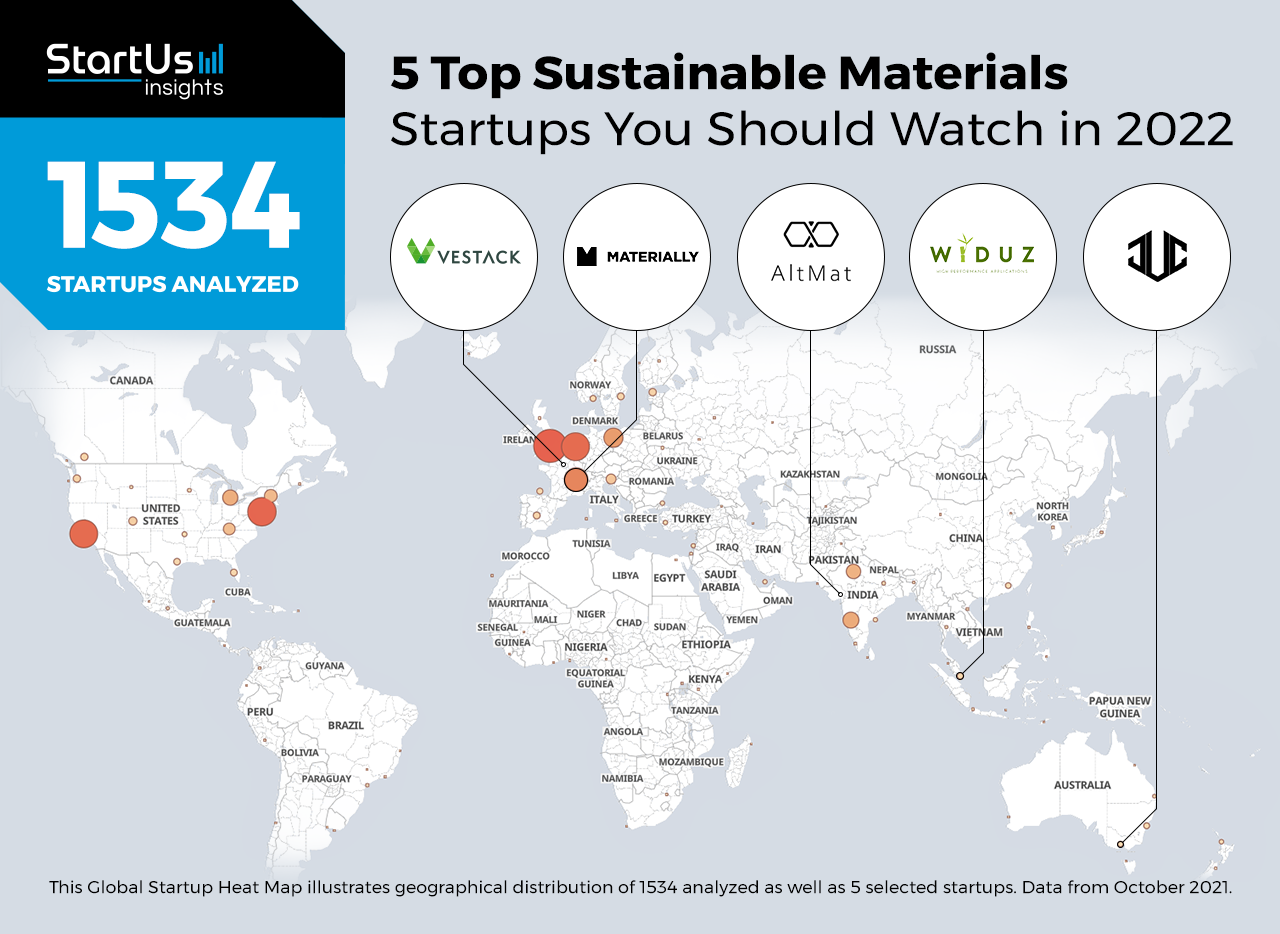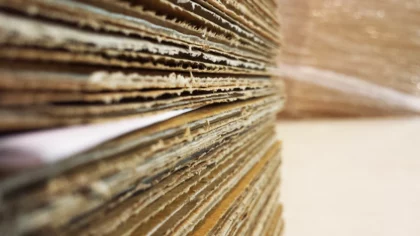Thousands of new startups are founded every year – emerging companies with the potential to disrupt the materials industry. To give you a head-start on emerging technologies and startups that will impact the materials sector in 2022, we analyzed a total of 1 534 global sustainable materials startups & scaleups. Meet 5 of the most promising startups to watch!
Global Startup Heat Map highlights 5 Sustainable Materials Startups to Watch in 2022
Out of 1 534, the 5 sustainable materials startups to watch are chosen through the Big Data & Artificial Intelligence (AI)-powered StartUs Insights Discovery Platform, covering over 2 093 000+ startups & scaleups globally. As the world’s largest resource for data on emerging companies, the SaaS platform enables you to identify relevant startups, emerging technologies & future industry trends quickly & exhaustively.
The Global Startup Heat Map below highlights the 5 sustainable materials startups you should watch in 2022 as well as the geo-distribution of the other 1 529 startups & scaleups we analyzed for this research. We hand-picked the 5 highlighted sustainable materials startups based on our data-driven startup scouting approach, taking into account factors such as location, founding year, the relevance of technology, and funding, among others.
Materially advances Sustainable Material Development
Raw material procurement is a vital factor that impacts manufacturing costs. Moreover, developing new materials is resource and time-intensive as well as usually contributes to environmental pollution. This is why many businesses now use recycled materials as manufacturing inputs. It also deviates recyclable materials from reaching landfills. Consequently, startups develop sustainable materials that readily replace their resource-intensive counterparts, like plastics and synthetic composites.
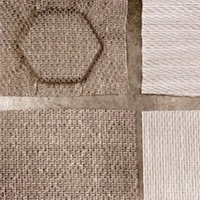 Founding Year: 2020
Founding Year: 2020
Location: Milan, Italy
Materially is an Italian startup that facilitates sustainable material development. The startup partners with materials producers and users to develop personalized products. Their range of products includes plastic replacements, recycled plastics, grown materials, bio-based materials, and leather alternatives. Besides, Materially provides end-to-end services in product development from benchmarking to communication and positioning strategies. Hence, the startup serves as a one-stop solution for manufacturers to design and manufacture sustainable materials.
Vestack builds Modular Bio-based Buildings
The rising demand to build residential dwellings leads to a massive amount of energy, resource, and raw material consumption. However, the production of traditional construction materials, including cement, is a major source of greenhouse gas emissions worldwide. To tackle this, startups provide alternative materials for the construction sector. For example, growing bio concrete using microorganisms that emit zero carbon.
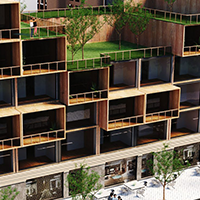 Founding Year: 2019
Founding Year: 2019
Location: Paris, France
Funding: USD 3,15 M
French startup Vestack develops modular bio-based buildings. The startup combines digital twins, bio-based materials, and modular manufacturing to provide low-cost homes with improved thermal and acoustic performance. Moreover, this enables high-speed construction projects that finish within one or two weeks. Thus, Vestack allows real estate companies and landowners to improve the sustainability of their building projects.
Widuz develops High-Performance Bamboo Composites
The heterogeneous nature of composites is the main challenge in recycling many packaging materials and plastic products. At the same time, industrial degradation of high-performance composites is resource and capital-intensive. To this end, startups offer bio-based composites that are either recyclable or completely biodegradable. This allows manufacturers to reduce the environmental impacts due to their products and increase product value.
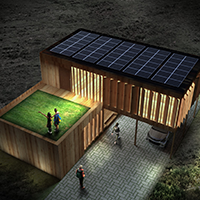 Founding Year: 2019
Founding Year: 2019
Location: Singapore
Funding: USD 100 000
Widuz is a Singapore-based startup that offers Bamboo Veneer Lumber (BVL), high-performance composite lumber made from bamboo fibers. Apart from being sustainable, BVL has a high strength-to-weight ratio compared to conventional construction materials. Therefore, it finds applications in structural beams and external wall cladding while also being used in manufacturing furniture and skateboards. Widuz, thus, enables construction, sports, and furniture companies to shift to a sustainable choice without losing material quality.
AltMat provides Eco-Friendly Materials
The textile and clothing industry consumes a massive amount of resources due to its complex manufacturing processes. In addition, the disposal of end-of-life textile products causes land and water pollution. To solve this, startups develop biomaterials using agricultural side streams. Since they are byproducts, such materials have a significantly lesser carbon footprint and reduce production costs.
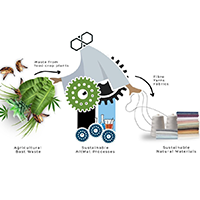 Founding Year: 2019
Founding Year: 2019
Location: Ahmedabad, India
AltMat is an Indian alternative materials startup that manufactures eco-friendly materials for interiors, apparel, accessories, nonwoven, and packaging applications. The startup upcycles agricultural waste through its proprietary processes to develop sustainable fibers, yarns, and fabric. Production of these materials consumes much less water than conventional materials and minimizes chemical usage. They are also recyclable and biodegradable as well as of superior quality. This allows the textile industry to move towards environmentally friendly materials and enable sustainable fashion choices.
JUC Surf manufactures Recycled Carbon Fiber Surfboards
Carbon fiber production is more energy-intensive than producing steel and causes a significant amount of carbon emissions. At the same time, carbon fiber has a much higher life cycle than steel as the former one does not corrode, degrade, or rust. Even then, an extensive amount of global carbon fiber produced is forwarded to landfills as complete products or scraps. This is why startups use carbon fiber reclamation and recycling to develop high-quality products.
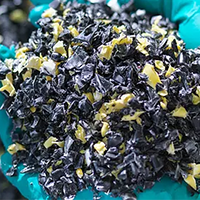 Founding Year: 2020
Founding Year: 2020
Location: Victoria, Australia
Australian startup JUC Surf develops surfboards using recycled carbon fibers. In addition, the startup recycles their surfboards once they break, thereby diverting materials from landfills. This enables the startup to significantly reduce material costs and carbon footprint without degrading material quality while offering a sustainable product for its customers.
Discover All Emerging Materials Startups
The sustainable materials startups showcased in this report are only a small sample of all startups we identified through our data-driven startup scouting approach. Download our free Materials Innovation Report for a broad overview of the industry or get in touch for quick & exhaustive research on the latest technologies and emerging solutions that will impact your company in 2022!

